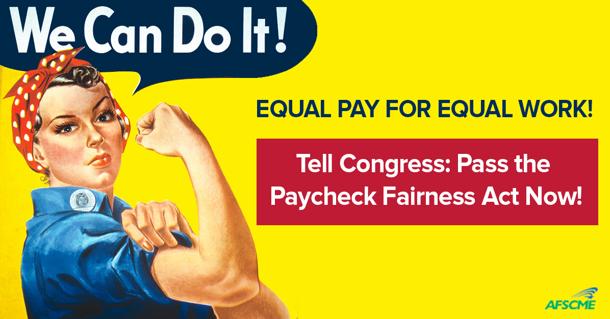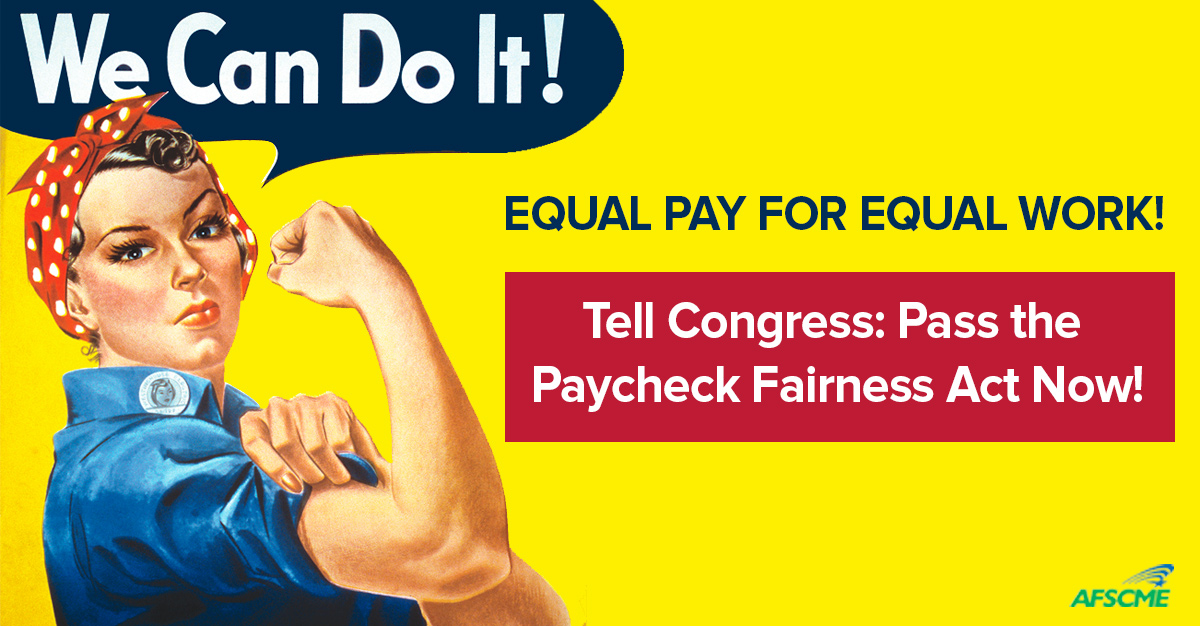
Today marks seven years since President Obama signed into law a bill designed to help prevent wage discrimination based on gender. The Lilly Ledbetter Fair Pay Act, named after the woman whose case against Goodyear went all the way to the U.S. Supreme Court, only to be rejected on a technicality, was the first piece of legislation the President signed because it was so important.
It still is, but there is much work to be done to make the promise of the federal law a reality for all women in America. Despite the law, women still make only 79 cents, on average, for every dollar a man makes. The gap is even greater for women of color.
Lilly Ledbetter’s story is one that never should have happened, and it bears repeating. A worker for a Goodyear tire factory in Alabama, she worked hard at a management-level job for 19 years, believing that she was compensated fairly, like every other woman and man who did what she did. But an anonymous note let her know the truth: During the course of her career, she had lost more than $200,000 in salary, and even more in pension and Social Security benefits.
A sex discrimination suit followed. She won, then lost on appeal. Eventually the case was presented to the U.S. Supreme Court, which ruled in 2007 that she should have filed her suit within 180 days of receiving her first unequal check – even though she couldn’t have known that at the time. With encouragement from Justice Ruth Bader Ginsburg, who dissented from the majority opinion, Ledbetter kept up her fight for justice. That justice was finally received on Jan. 29, 2009 when President Obama signed the bill into law.
To end this discrimination based on gender, we need to pass other laws at the federal, state and local levels to make sure that the protections of the Lilly Ledbetter Fair Pay Act exist in every workplace. The Economic Policy Institute lists 12 policy proposals that are critical to raising the wages of both women and men. The top three are:
- Raising the minimum wage.
- Eliminating the subminimum wage for tipped workers so that these workers receive the full minimum wage.
- Strengthening collective bargaining rights.
One key piece of legislation that must be passed is the Paycheck Fairness Act, first introduced in Congress in 2009 but which has not received enough support to get to President Obama’s desk. It was reintroduced last March by U.S. Rep. Rosa DeLauro (D-CT) and Sen. Barbara Mikulski (D-MD).
AFSCME is working with the State Innovation Exchange and other allies in a national action this week called “Equal Pay Can’t Wait,” in which state legislators from more than 20 states will introduce legislation in their states and raise public awareness to ensure that women are paid equally for doing the same work as men.
As AFSCME Sec.-Treas. Laura Reyes has written, “This law would make it easier for employees to share salary information, harder for employers to retaliate, and it would strengthen the Equal Pay Act, which prohibits wage discrimination based on gender. It is a common-sense solution that levels the playing field and gives millions of women the opportunity to work their way toward financial security.”
AFSCME was an early and ardent supporter of the Lilly Ledbetter Fair Pay Act, and has long advocated for closing the gender wage gap because women need an economy that works for everyone. We will never quit until the goal is accomplished.
You can urge Congress to pass the Paycheck Fairness Act, which addresses the gender wage gap and the need to raise wages of all workers by clicking here.
